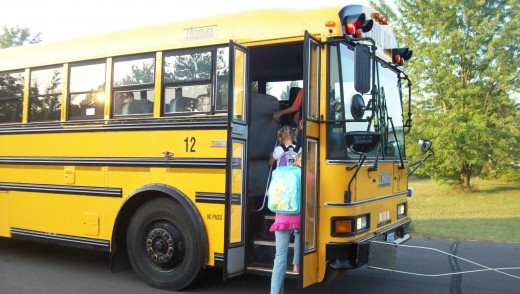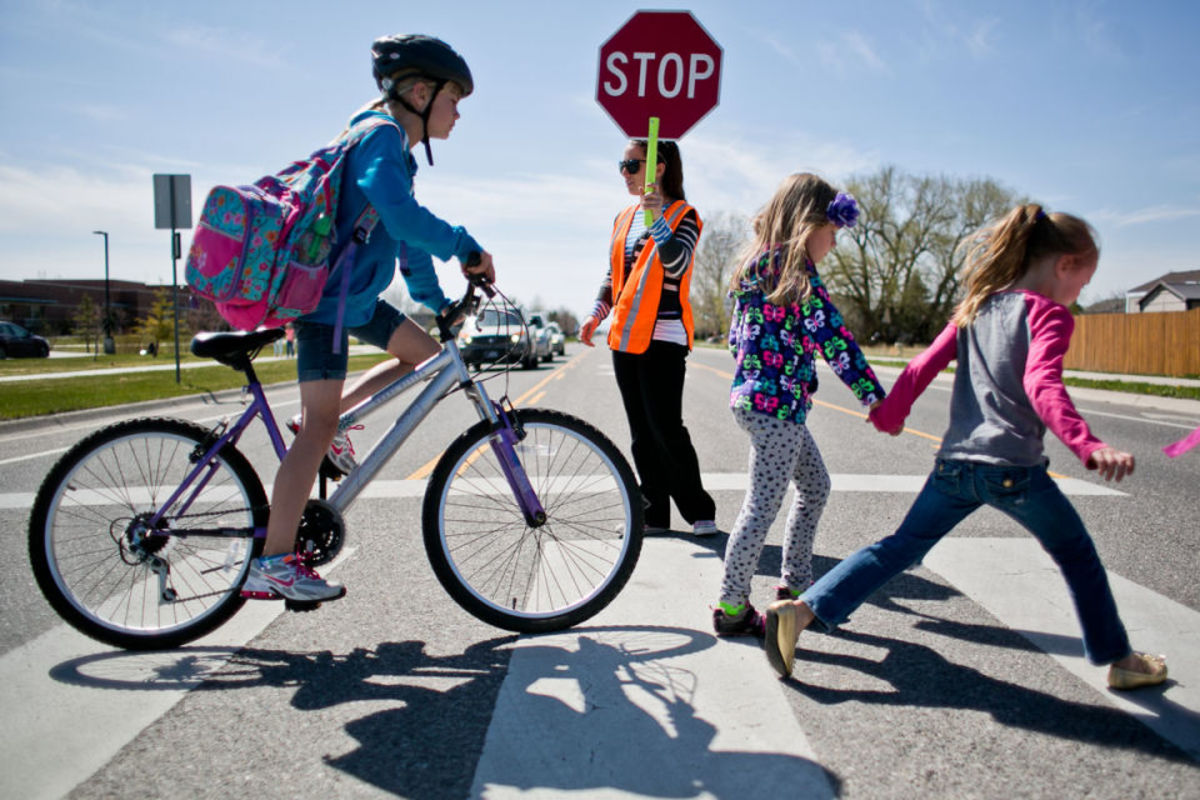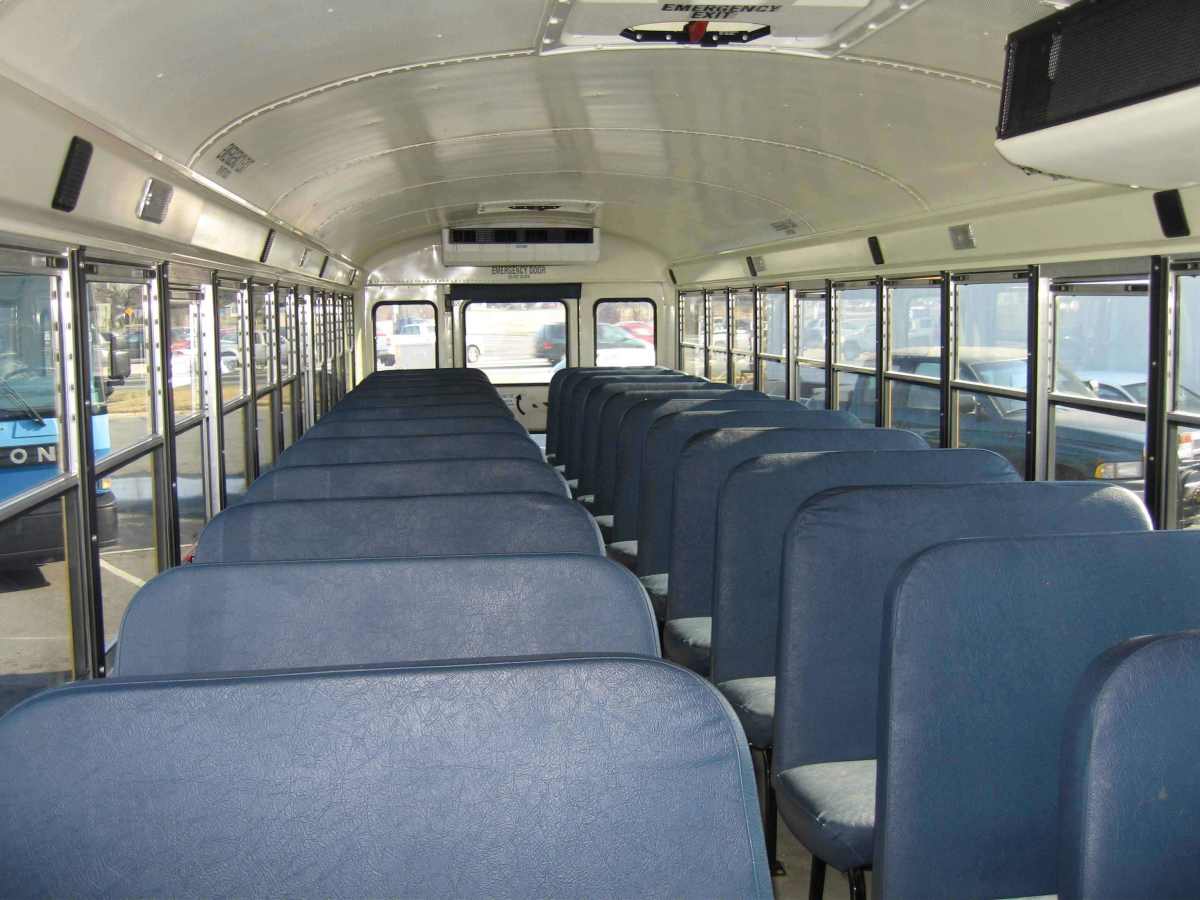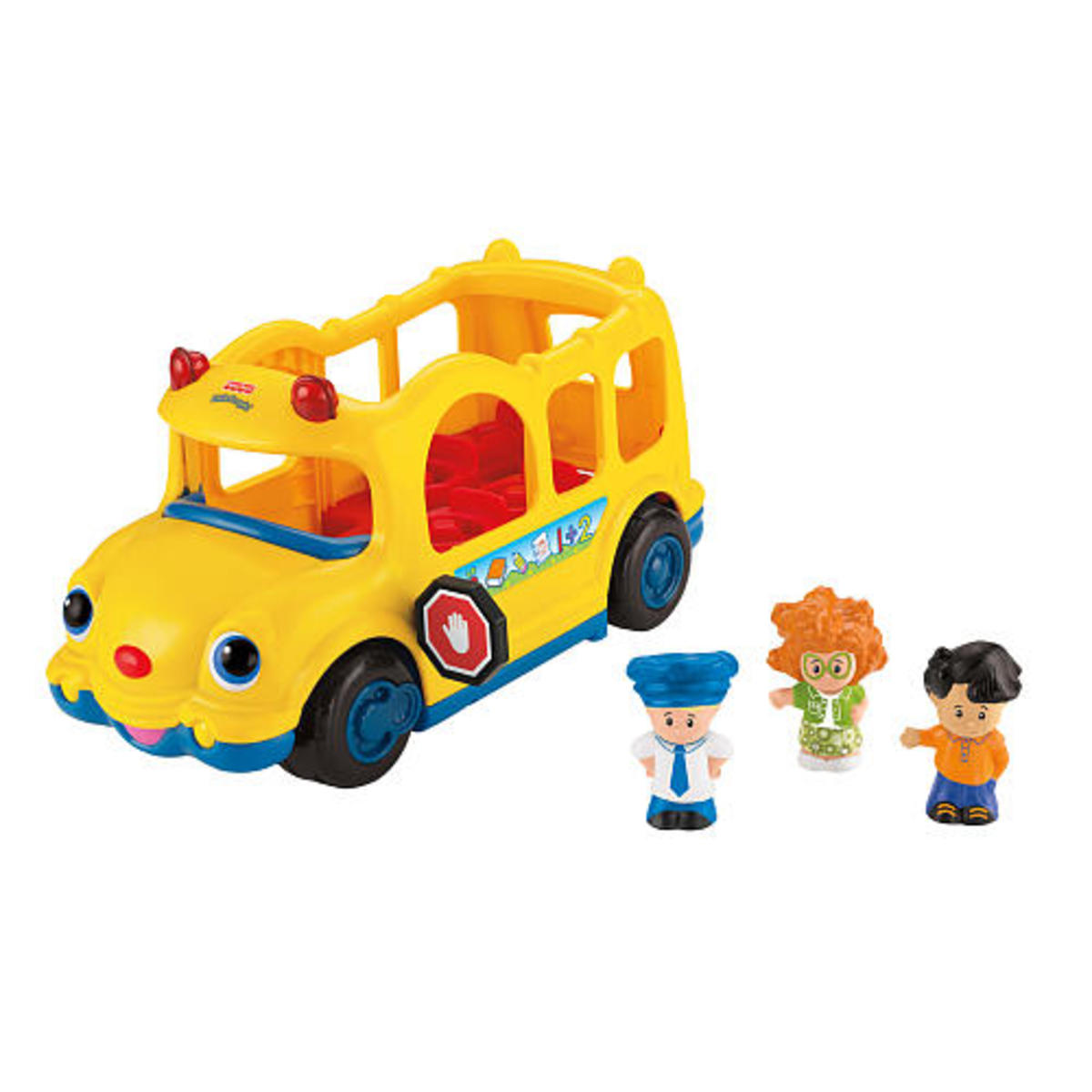School Bus Safety Tips

Waiting for the Bus
As exciting as it is to watch down the road for the bus to come; it is important for parents to stress proper safety with their children.
1. Stay out of the road.
2. Form a line
3. Stay together
Go out to the bus stop before school is back in session. Determine what type of visibility range there is from the road. What is the traffic flow like? Is it busy or slow during that time of the morning? Will cars be able to see your child easily?
Talk with your child about waiting at a certain spot until the bus doors open. Draw a chalk line if necessary to practice. Too many accidents occur each year from children not staying out of the "red" zone.
On the way to school
Bus drivers have big jobs! They are in charge of safely transporting upwards of 75+ children in one vehicle to their destination. These kind people need all the help we can give them.
1. Children need to remain seated.
2. Children need to remain quiet.
3. The hallway needs to remain clear.
4. Children need to pay attention to when/where their stop is.
Talk with your child about how important it is to remain seated while on the bus. Standing and moving around distracts the driver and could possibly disrupt other students. Try having practice runs. Either by driving in your own vehicle to the store or while running errands, "Alright, now show me how you're going to sit when you're on the bus." Help them make it a conscious effort. Or you could also set up some seats in the living room and pretend that you're on the bus. You would be playing the roll of the driver. Verbally explain what is going on outside of the bus. "We're slowing down to pick up more kids." ... "Oh, look out your window, do you see the cows?" Make it fun, but make it count. If you know how long the bus ride is going to be try to play the bus ride game for that same amount of time to get your child used to sitting for that length of time.
With all of those kids in one enclosed, metal vehicle the volume raises pretty fast. Be sure your child understands he/she needs to try as hard as they can to use a quiet voice while on the bus. Encourage them to talk to the people in the same seat or one right next to them. Silence is just not an option, soft volume is attainable.
We all want the children to arrive to school save and sound. Encourage your child to keep his/her backpack out of the isle. Other children could trip over it, and if the driver needs to make a sudden stop for any reason; their bag could go flying down that isle. Keeping the backpack in the seat or at your child's feet is safer for everyone. Including your child, as it reduces the risk of theft.
Bus drivers are on a schedule. Often times they need to stop at a number of schools to unload children in different grades. Be sure to talk with your child about watching for their stop both at school and on the way home. Your driver is not going to know every child's stop in the beginning of the year. Keep your child from having a long ride to the bus garage by encouraging them to pay attention during their trip.
In bad weather
If at all possible, keep your child indoors as long as you can before the bus arrives in bad weather. When that is not an option, be sure your child is equipped with the proper weather gear to keep them as safe, dry, and warm as possible.
Label your child's gear with their name. This will help in the event it is dropped or lost on the bus. Most bus drivers keep a "lost and found" box near the front of the bus.
Schools spend hundreds of dollars in paper alone sending out reminders to dress your child appropriately for the weather. It is a serious safety issue when it comes to your child's health.
Children with high energy
For those of us who are blessed with bundles of joy packing extra energy, school bus safety becomes more of a challenge. How do you keep your little ray of sunshine seated for that long? Here are some helpful ideas that have worked wonderfully for other children with extra energy:
1. Bring a book to read
2. Bring a notebook for drawing with a pencil
3. Bring a diary to write in
4. Pack a sketch-a-doodle, or an etcha-sketch
5. Cross-word puzzles or word find books
These choices give your child something to concentrate on so the trip will go faster and their bottom can stay planted... at least for most of the trip. Avoid portable video games as these tend to suck their attention in too much, causing them to miss their stop, as well as running a higher risk of being broken or stolen.
Getting off the bus
Be sure your child knows to exit the bus and immediately leave the "red" zone. They can go and check the mail after the bus is at the next stop. They can call their friend when he/she gets home. There is no good reason not to leave the area surrounding the bus immediately.
If a book, toy, homework project, or anything else falls, slides, or blows under the bus - DO NOT go get it! Stress this to your child over and over. Most accidents happen after a child has exited the bus and the driver believes them to be cleared of the area (since they can no longer see your child).
Have someone waiting for them. Make a game of who can touch the front door first. Have an after school snack ready and waiting. Anything you can think of to motivate your child to get away from the bus as soon as they get off.
Your goal as a parent should not be to scare the living wits out of your child, it should be to make sure they are clear on safety issues to prevent any accidents from happening.








